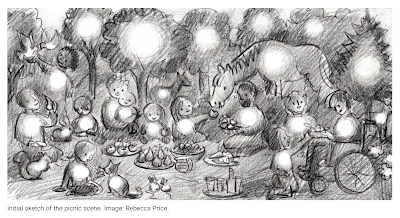It's still the time to consider how testimonies can be personal guideposts as we try to live a right life. Today, more than ever, our Quaker identity calls us to act, reflect, love, learn. Dr. Martin Luther King, Jr. asked us to build the beloved community - one of justice, peace, love. Margaret Fell asked "What canst thou say?"- not necessarily a literal question, a reminder to listen to others, to the earth, to our own inner teacher. It was a call to act. It was a call to love.
We have explored the Quaker and personal testimonies through the course Testimonies Rock! You can read more about our interactive course by clicking here.
Let's take this opportunity to look carefully at the Quaker testimonies of
truth, community, equity, and fairness.
Begin by taking some time to think about each of these. You might write each testimony in the center of a piece of paper. Around the word on the center of the page, jot down your thinking - don't edit yourself, just write what comes to mind as you think about each of these testimonies.
You might ask:
What comes to mind when I think about truth?
What do I feel makes up the idea of _____? Why is ____ important?
How do I define ____?
Once you've done this for each of the four testimonies, take a few moments to reflect on your visible thinking. What are the main ideas for each that seem to be popping out? Circle those ideas. Are there any common threads between all four? Where are the differences?
Take some time to capture (through writing, drawing/painting, recording, dictating) these big ideas.
Which of these testimonies feels the most relevant at this time for you? Using your chosen testimony, create a reflection and an intention:
The testimony of ________ is important/resonates now more than ever.
- What do you see, feel, know, believe that makes your claim true for you? Consider all the ways that you have defined this testimony. Ask yourself "what makes me say that?"
- What's left unanswered or unknown? What isn't explained? What new questions or issues does this claim raise?
- How does this draw me to act? What part do I play in this?
 |
| https://www.quaker.org.uk/blog/lets-explore-the-quaker-way |
For added information about testimonies:
Types of thinking encouraged:
- Develop Questions
- Explore in Depth
- Examine Differing Points of View
- Begin to develop sensitivity to big ideas
- Deepen emerging understandings about global questions/challenges
- Develop thoughtful interpretations by encouraging reasoning with evidence
- Identify truth claims
- Explore strategies for uncovering truth
Source:




No comments:
Post a Comment